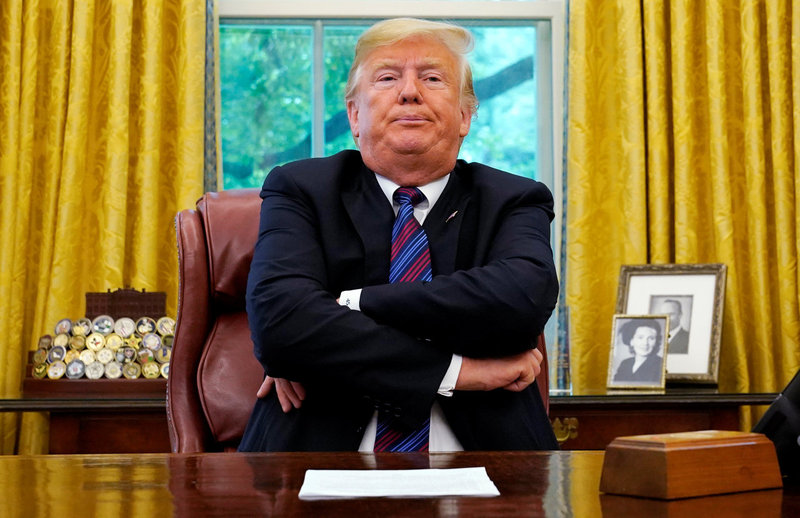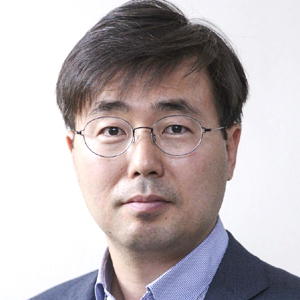 |
|
US President Donald Trump strikes a pose after renegotiation the US-Mexico terms for the North American Free Trade Agreement (NAFTA) on Aug. 28.
|
How much longer can the Korean Peninsula withstand his unpredictability and risky tactics?
“Trump is Trump.” An American professor at a university in Seoul said this to me in a conversation about US President Donald Trump before I came to Washington. We were talking about how he had broken with the mainstream political and media language in Washington, showing the tenacity and nerve that led to a historic first North Korea-US summit with North Korean leader Kim Jong-un. The way the professor said it also seemed to suggest a feeling of cynicism about Trump’s style: daring and utterly unpredictable. I thought of the words “Trump is Trump” again when I saw the US President drawing renewed attention to the issue of North Korea-US relations recently after a period of stagnation. Just 24 hours or so after announcing a fourth North Korea visit by Secretary of State Mike Pompeo, Trump declared on Twitter that the visit had been cancelled. Four days later, Secretary of Defense James Mattis raised the specter of resuming joint military drills with South Korea, declaring that the US had “no plans at this time to suspend any more exercises.” This prompted a flurry of speculation in the South Korean and US press that relations between Pyongyang and Washington were returning to their status quo before the Singapore summit. A day later, Trump casually flipped things again, tweeting that there was “no reason at this time to be spending large amounts of money on joint U.S.-South Korea war games.” It’s fortunate that Trump stepped in so quickly to reduce the level of tensions on the Korean Peninsula. But I also can’t shake certain bitter questions about how much more of this head-spinning sensation we have to take. We’ve been riding on a Trump rollercoaster – a wild ride from borderline-warlike remarks about “fire and fury” to agreement to a North Korea-US summit, the announcement of that summit’s cancellation, and then back to the summit as scheduled. But with the huge repercussions it holds for the Korean Peninsula and the rest of the world, can we really have the US continuing to seesaw from day to day like this in its diplomatic approach? The stalemate between North Korea and the US right now is a matter of each side demanding something from the other first – an end-of-war declaration on Pyongyang’s side, denuclearization measures on Washington’s – without having yet established complete trust in one another. It’s an issue that requires bold resolution from both sides. But there are also quite a few things for Washington to reflect on in terms of the deadlock with Pyongyang, a loss of momentum in inter-Korean relations, conflicts with China, and now even speculation about fissures with Seoul. After the summit in Singapore, Trump said he had achieved in months what his predecessors had failed to achieve in decades, boasting that North Korea was “no longer a nuclear threat.” His recent remarks stating he believed North Korea had taken steps toward denuclearization stirred up speculation that some kind of progress was being made between Pyongyang and Washington. The US may be taking steps to prevent the South Korean government from moving too quickly in terms of inter-Korean relations, but it also needs to consider whether Trump’s optimism trend might have sent positive signals to the other countries involved. Washington’s lack of communication with Seoul regarding North Korean affairs I also have to question how closely the US is sharing North Korea-related matters with South Korea. Seoul received no prior information whatsoever when Mattis brought up the sensitive issue of possibly resuming joint military exercises. If anything, the US triggered an outcry over “violation of sovereignty” when it disallowed a planned joint inter-Korean railway inspection effort. Even within the US, Trump’s decision to bring the US-China trade war into the North Korean denuclearization issue has observers accusing him of “creating chaos” and complicating the problem’s resolution.
 |
|
Hwang Joon-bum, Washington correspondent
|







